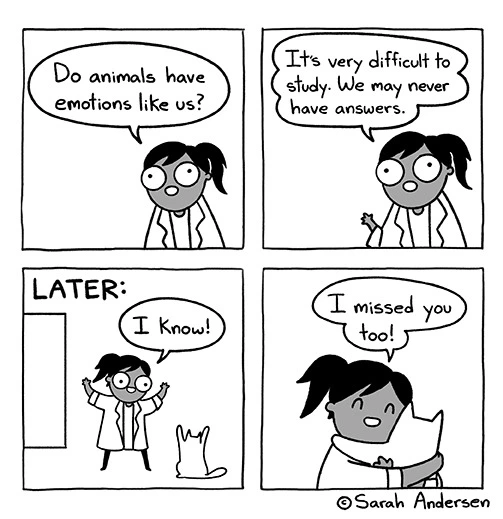this post was submitted on 30 Jun 2024
1115 points (98.4% liked)
Comic Strips
13337 readers
3619 users here now
Comic Strips is a community for those who love comic stories.
The rules are simple:
- The post can be a single image, an image gallery, or a link to a specific comic hosted on another site (the author's website, for instance).
- The comic must be a complete story.
- If it is an external link, it must be to a specific story, not to the root of the site.
- You may post comics from others or your own.
- If you are posting a comic of your own, a maximum of one per week is allowed (I know, your comics are great, but this rule helps avoid spam).
- The comic can be in any language, but if it's not in English, OP must include an English translation in the post's 'body' field (note: you don't need to select a specific language when posting a comic).
- Politeness.
- Adult content is not allowed. This community aims to be fun for people of all ages.
Web of links
- [email protected]: "I use Arch btw"
- [email protected]: memes (you don't say!)
founded 2 years ago
MODERATORS
you are viewing a single comment's thread
view the rest of the comments
view the rest of the comments

It’s the fish argument all over again. Some vegetarians reason they can eat fish because fish has simple enough nervous system that it can be aware of its suffering. Sure it reacts to pain, but is it aware?
Similarly, grass may react to damage, but have such simple systems that you can’t even call it pain, much less that they have any awareness of pain
Why can't you call it pain? Plaints obviously are aware of it if they react to it.
There is an interesting catch to this argument, which is that in a human body we can eliminate pain by using general anesthesia or nerve blockers. Locally the body still reacts to damage but the actual person doesn’t experience any pain because it isn’t communicated to their consciousness. If we accept that being unconscious precludes experiencing pain then it follows that consciousness is a pre-requisite for pain.
On the other hand if it’s still unethical to inflict damage on a living thing without consciousness then is it unethical to operate on a sedated person even though they don’t consciously experience pain?
Very interesting points, and this was the sort of discussion I was hoping to have. These are complex ethical questions without simple answers and in 100 years, people may look back at any eating choices made in this time, be they vegan or 100% carnivore, to be absolutely nuts because none of us have figured out that the real key to good and ethical nutrition is everyone eats a soup made from cloned moose DNA and petroleum. Science is constantly changing and moving on, so who knows? But it's an interesting thing to talk about, at least to me.
For now, I am on the side of those who say it is not ethical to eat meats, but it is ethical to eat plants. In 20 years of plant science? Who can say?
Not at all, it’s just a reaction. When you drop your mentos into Diet Coke, you see a very excited reaction, but do you really call that an emotion or can you really connect that with any entity’s awareness?
Mentos and Diet Coke are not alive. Plants are. Mentos and Diet Coke are also not having reactions to being damaged that signal that damage to other cans of Coke and packs of Mentos. Plants do. That is not a good analogy.
what do you mean by "alive", and why should that matter?